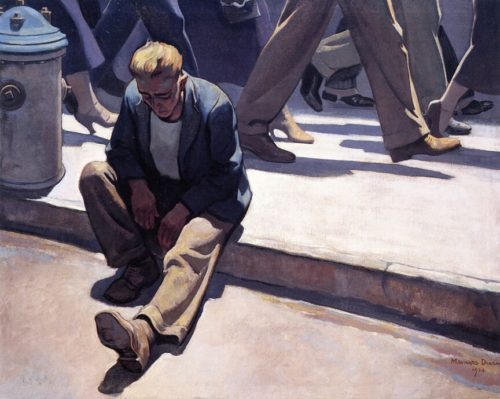This post is for…
a) people with Major Depressive Disorder. If you don’t have MDD, you’ll probably roll your eyes and say, “Oh great, another medication that might get rolled out for the blues that a little jog in nature could fix.”
Well, if you do have MDD, you know just how desperate and dire things can get, how little jogs in nature sound like mountains you have no interest in climbing, and you might get excited (if excitement in life is something you can manage) for the potential relief this drug might offer.
b) people with Major Depressive Disorder who are tired of waiting forever for medication to either work or not work.
Medscape reports on a Phase 3 trial of a once-daily neuroactive steroid called zuranolone, and the combined analysis of four trials of the drug.
What did they find?
That participants with MDD who took the medication showed “mental well-being and functioning improved to near general population norm levels” compared to the placebo group.
That’s big, considering these are folks with Major Depressive Disorder.
Further, participants reported an improvement in symptoms, beginning on Day 3…. Day 3…. let me repeat…Day 3 of treatment.
At Day 15, those in the treatment group had “significantly greater improvements” than the control group in physical functioning, general health, vitality, social functioning, and role-emotional symptoms.
These are all important Quality of Life measures.
In other words, major depressive disorder isn’t just about being depressed — it affects our quality of life in so many areas.
The Quality of Life measure that improved most significantly was social functioning.
If you have Major Depressive Disorder, you probably know that social functioning often feels nigh impossible because you a) just don’t feel social and b) feel like you can’t function.
So you put social + functioning together, and it just makes you want to lie in bed longer and sleep, sleep.
So it’s really important to not just say, “Do you feel less depressed?”
It’s really important to ask, “Well, how’s your social functioning?” “How’s your vitality?” “How’s your physical functioning.” etc.
Now I know your next question (if you’re still reading).
What about side effects?
In trials, about 60% of participants in the zuranolone group reported side effects of some kind.
That sounds high, until you consider that 44% in the placebo group also reported side effects from receiving no medication.
Further, the rate of severe adverse effects was 3% in the zuranolone group and 1.1% in the placebo group.
Oh, and some further good news.
It didn’t seem to affect participants’ libido or cause any type of sexual dysfunction, which you’ll sometimes see in other antidepressants.
I’m excited about the potential for this potential medication.
Major Depressive Disorder can destroy one’s life many times over and in a thousand different ways before it actually destroys it, and this medication seems to significantly help, and quickly.
And no, I’m not involved with, paid by, or in any way, shape, or form affiliated with the pharmaceutical industry.
I post studies like these because, as someone who’s experienced the deepest darkness myself and who knows a lot of folks with it, we can get pretty desperate and any light — if it’s possible to even conceive of the notion of light — is good news, indeed.
So let’s continue hoping and praying for good things from this potential, new treatment.
And finally…
Find a psychiatrist here, via Psychology Today.
Find a therapist here, via Psychology Today.
And find spiritual salvation here, via the words of Christ: Jesus: “I am the way, the truth, and the life. No one comes to the Father except by me.”
If you’re having thoughts of harming yourself or others, please call the National Suicide Lifeline at 1-800-273-8255.
[Painting: Forgotten Man, Maynard Dixon]

